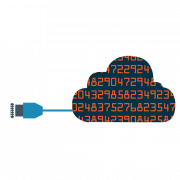All Articles in Mobile marketing
Fundraising Preference Service launches
Instagram following FTC warnings
After the FTC fires out letters to 90 online influencers, Instagram launches a new transparency tool to benefit both brands and audiences. Chloe Deng reports.
Phone-paid Services Authority helps clarify ‘service’ v ‘marketing’ messages
Do SMS messages sent to request confirmation of an order for premium rate number services constitute marketing? The Phone-paid Services Authority considered this point with the Information Commissioner’s Office. Thomas Spanyol reports the PSA guidance.
New regime proposed for premium rate online competition services
Consumer complaints about online competition services are high and PhonepayPlus wants to take action to improve consumer confidence. Anna Williams looks at the proposed new Special conditions.
Update on changes afoot at PhonepayPlus
PhonepayPlus announced a raft of changes in July – including a name change, amended policy statement and updated digital media guidance. Daisy Jones reports.
ICO fines “Better for the country” Brexit body £50,000
“Leave.eu” sent 500,000 spam texts to UK mobile users urging a referendum “Leave” vote. ICO said the recipients gave no prior consent and imposed a substantial fine. The organisation says it will appeal. Jude King reports.
Ofcom launches new mobile nuisance call opt-out
The UK’s “do not call” list enabling users to opt out of nuisance calls is available for mobile as well as landline numbers. Now Ofcom has acted to raise awareness of this and increase mobile registrations. Chloe Dumoulin-Richet reports.
The ICO publishes updated direct marketing guidance
In September 2013 the UK’s data watchdog published its first “Direct Marketing Guidance.” This upset the direct marketing fraternity with stricter approaches in various areas. Now an updated version has appeared. What are the key changes? Georgina Graham reports.
Online Behavioural Advertising principles extended to mobile
Almost five years after the launch of Best Practice Recommendations for use of cookies and similar technology in connection with online behavioural advertising, new “Mobile principles” finally extend these to the mobile space. Georgina Graham reports.
ICO uses new powers for the first time and imposes £200,000 fine on nuisance text marketer Help Direct UK Ltd in a case “with no mitigating factors”
Following the scrapping of the “substantial damage or substantial distress” requirement for imposing fines of up to £500,000 for spamming, the ICO has found “no mitigating factors” and penalised Help Direct UK accordingly. Stephen Groom reports.
The ICO sounds a warning on public wi-fi and privacy
Following a spot check of the data collection practices of High Street wi-fi services, the UK data regulator’s blog has recently advised the public to be wary of how much personal data the providers of such services collect. George Garrard reports.














